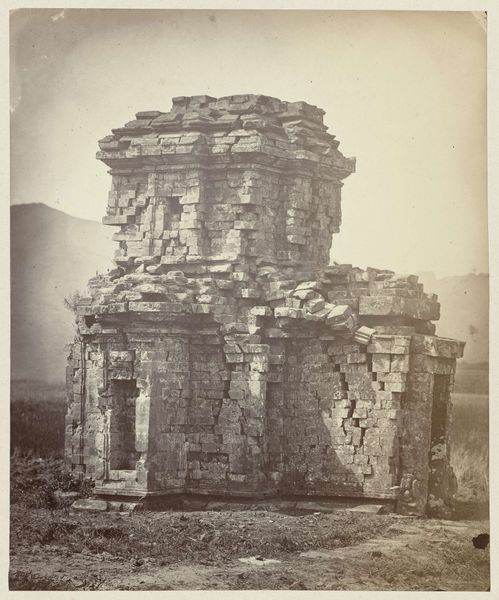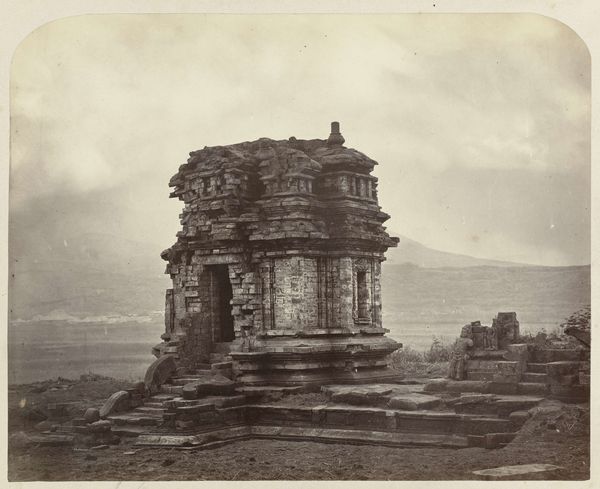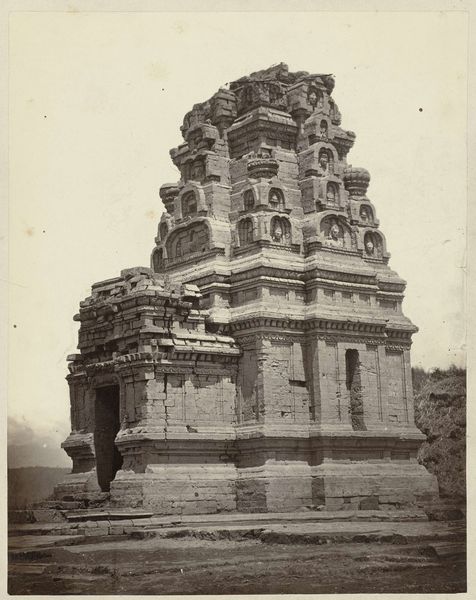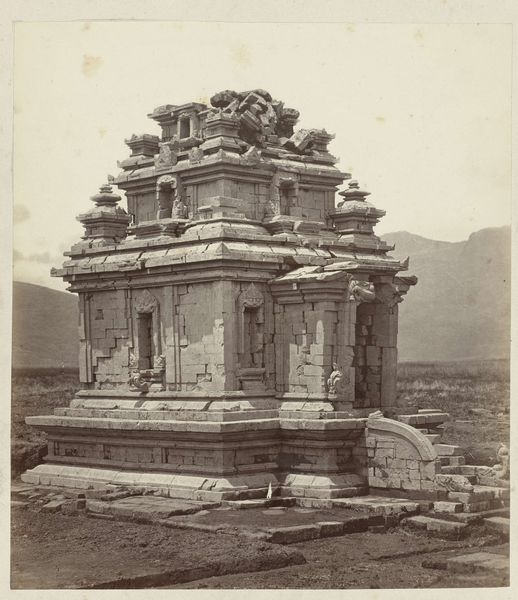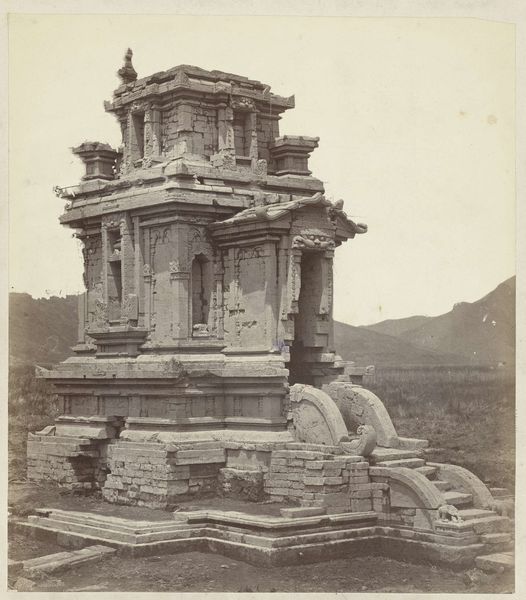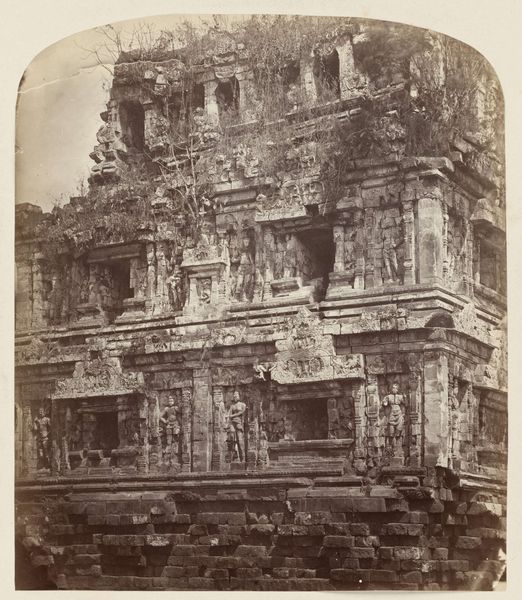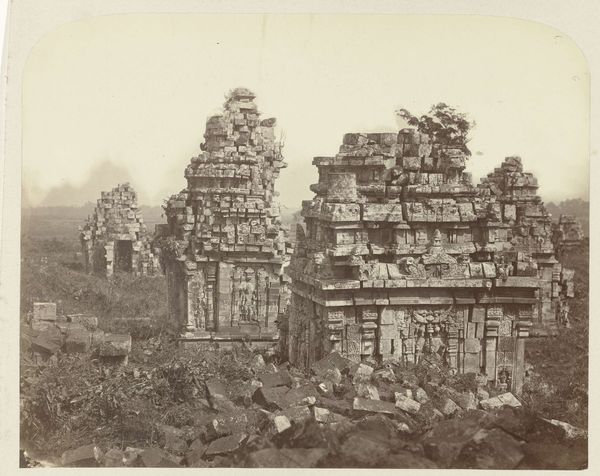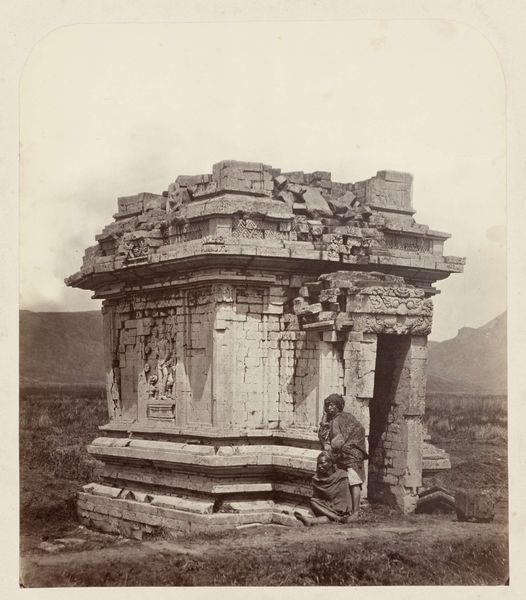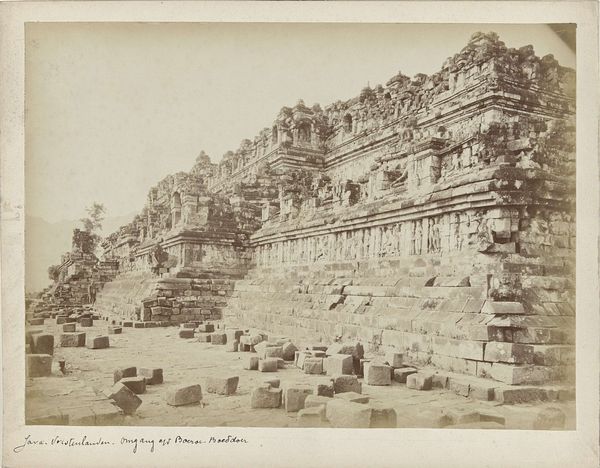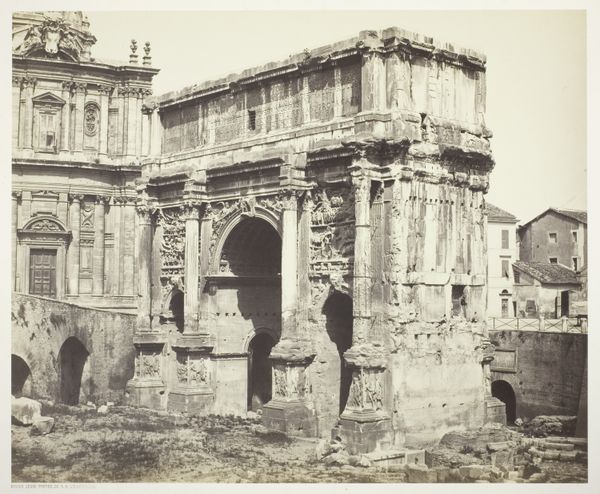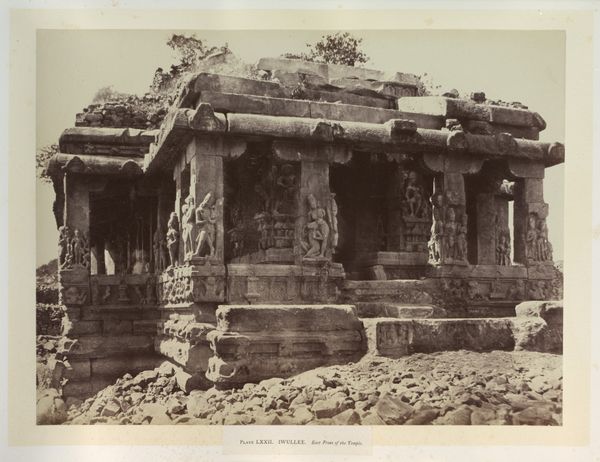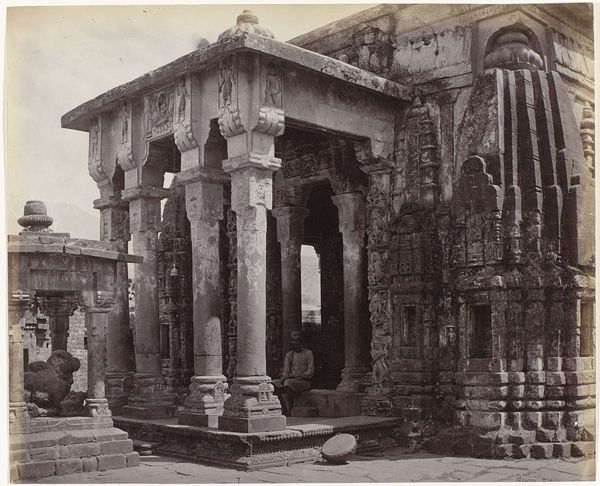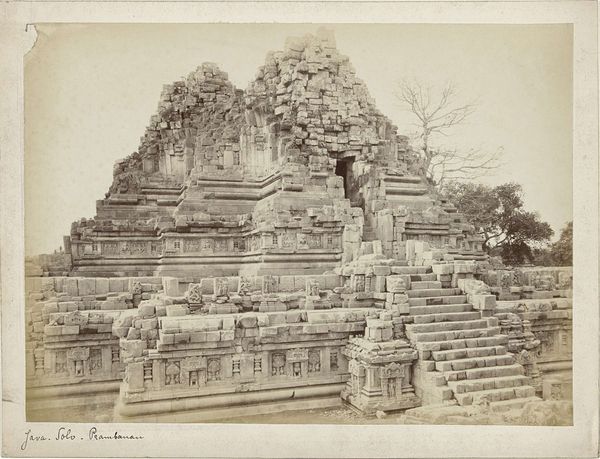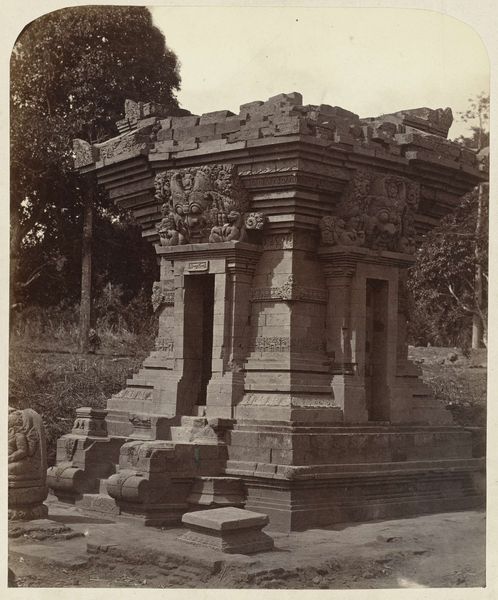
Candi Parikesit, general view (possibly from northwest) with sculptural remains scattered around. Dieng plateau, Wonosobo district, Central Java province, 9th century. Possibly 1864 - 1867
0:00
0:00
photography, site-specific
#
asian-art
#
landscape
#
photography
#
ancient-mediterranean
#
site-specific
Dimensions: height 340 mm, width 290 mm
Copyright: Rijks Museum: Open Domain
Here is a general view of Candi Parikesit, taken by Isidore Kinsbergen in the 9th century in Central Java province. The photograph, rendered in muted sepia tones, captures the temple's robust form, its materiality evident in the rough-hewn stones. The temple's structural integrity is immediately apparent, a testament to the sophisticated engineering of the time, though weathered and timeworn. The temple's architecture destabilizes traditional notions of the sacred by integrating elements of local animism with established religious motifs. Kinsbergen's composition encourages us to consider the temple within its broader geographical and cultural context. By focusing on the temple's physical presence and the interplay of light and shadow, Kinsbergen highlights not only its aesthetic qualities but also its function as a signifier of cultural values. This interplay challenges fixed meanings and allows for new perspectives on space, perception, and representation.
Comments
No comments
Be the first to comment and join the conversation on the ultimate creative platform.
